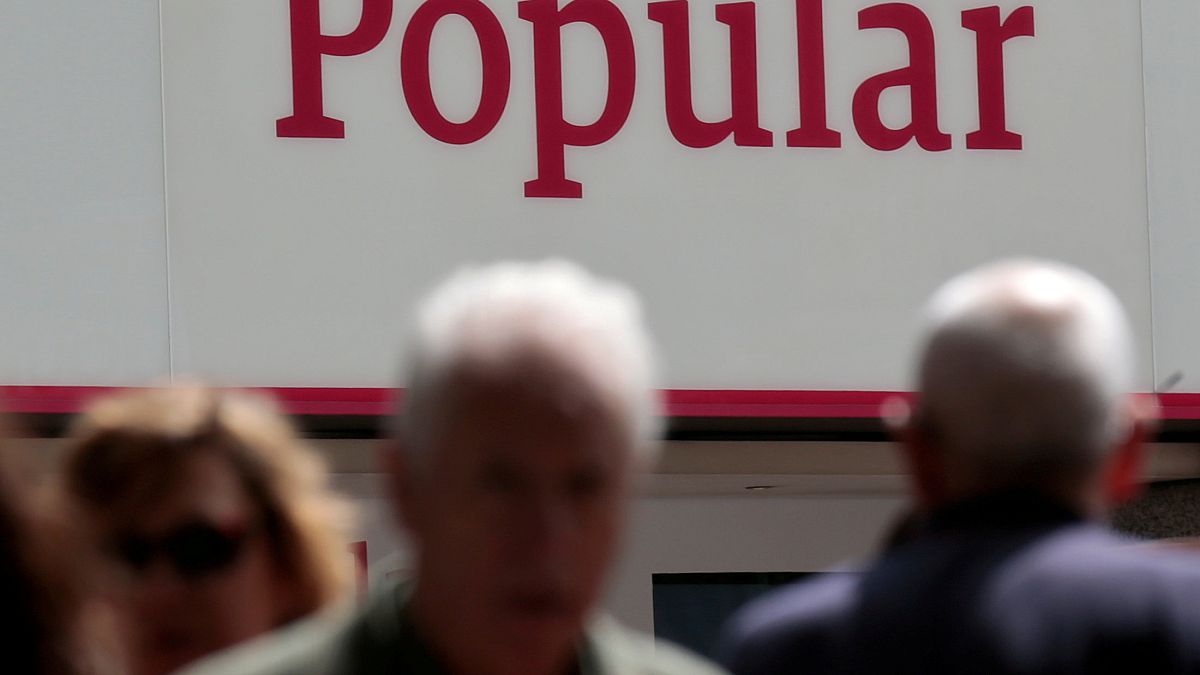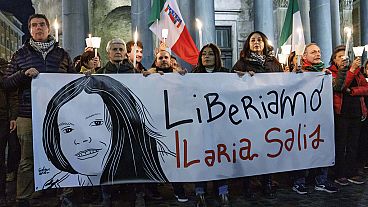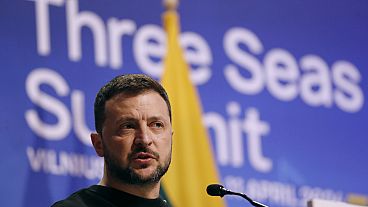Following Santander's last minute rescue of Spain's Banco Popular, European authorities have stepped in to avert a collapse.
European authorities stepped in to avert a collapse of Spain’s Banco Popular (POP.MC) following a run on the bank, orchestrating a last-minute rescue on Wednesday by Santander (SAN.MC), the country’s biggest lender.
Owners of Popular bonds faces losses of some 2 billion euros, while Santander will ask its shareholders for around 7 billion euros ($7.9 billion) of capital to absorb Spain’s sixth biggest bank.
Popular’s rescue was unveiled as the European Central Bank announced the lender was set to be wound down, echoing a banking crash some five years ago that cost Spain 40 billion euros.
Santander’s takeover of the bank, which has been weighed down by risky property loans, for a nominal one euro marks the first use of a stricter European Union regime to deal with failing banks adopted after the financial crisis. The sale was organized in less than 24 hours, and followed a recent acceleration in the withdrawal of deposits, which two people with knowledge of the matter said had in recent weeks hit 18 billion euros, equivalent to almost one quarter of the total.
Banco Popular popped. Did not provide test for CoCo bonds. Securities were wiped out before they could be triggered. https://t.co/8qno5khL7fpic.twitter.com/bzMFuF8jFa
— Holger Zschaepitz (@Schuldensuehner) June 7, 2017
A final decision to sell Popular was made on Wednesday, Dominique Laboureix, a member of the Single Resolution Board (SRB), told a news conference in Brussels. The SRB is the agency set up by the EU to wind down stricken banks.
In contrast to earlier crises, the hurried sale of Popular did not spook markets and banking stocks rose in Europe.
“This deal is good for Spain and it’s good for Europe,” Santander chairman Ana Botin said of the agreement, which breaks the mold of using taxpayers’ money, instead imposing losses on shareholders and creditors of the bank.
Morgan Stanley on “The #EU‘s First Resolution”#BancoPopular#BRRDpic.twitter.com/PTibecMMY2
— bondZilla (@liukzilla) June 7, 2017
This resolution worked in Santander’s favor, and was described by two debt investors as unexpected, with the owners of so-called AT1 and AT2 bonds suffering roughly 2 billion euros ($2.2 billion) of losses and shareholders losing everything.
The ECB said there was a “significant deterioration of the liquidity situation of the bank in recent days” and that in the near future Popular would have been “unable to pay its debts”.
Up to 2 billion euros a day was being taken out of the bank by savers last week, another source told Reuters.
“We got it done before markets opened. That was the target,” Elke König, who chairs the Resolution Board, said.
Unlike Italy, which has been grappling with problem lenders for years, Spain’s reaction was prompt and in contrast to the 2008 banking crisis it met with calm in the markets.
“This shouldn’t pose any real problems for other banks,” Aberdeen Asset Management Head of Credit Research Laurent Frings said. “But it does show that there is real risk in investing in these second-tier names.”
Spanish Economy Minister Luis de Guindos said Santander’s takeover was a good outcome for Popular given its situation in recent weeks and it would have no impact on public resources or other banks. Botin welcomed Popular customers and said that the combination of the two would strengthen Santander’s geographic reach as the economies in Spain and Portugal improved. “It gives certainty and stability to Spain’s financial sector,” she said.
Santander, which was unaffected by the banking crisis in Spain that forced Madrid to seek international aid, said buying Popular would accelerate growth and profit from 2019. The group, with operations from South America to Britain, said it would set aside 7.9 billion euros to cover the cost of non-performing assets, which are loans at risk of non-payment.
Struggling under the weight of 37 billion euros of non-performing property assets left over from Spain’s financial crisis, Popular had seen its share price slump.
It was among a handful of banks that emerged as vulnerable to stress, such as an economic downturn, in a European Banking Authority simulation last summer and had remained vulnerable with a ratio of risky loans around three times above the average of its Spanish rivals.
But Popular’s small and medium-sized company loan portfolio, the largest among Spanish lenders, presents an opportunity for Santander, which said it would now lead this growing market.
It will also sell off at least half of Popular’s property assets within about 18 months.
(With Reuters)



